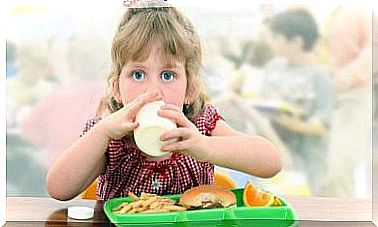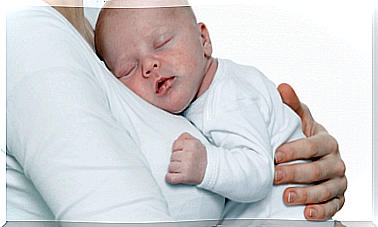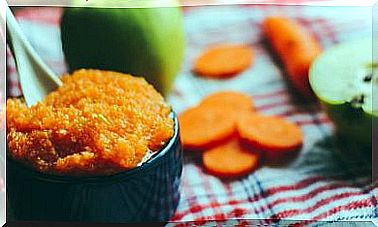Diet After The Birth Of The Child

After pregnancy, many women want to regain their normal weight as quickly as possible. This article will tell you everything you need to know about this topic. In addition, we explain to you what a diet can look like after the birth of your baby.
After giving birth, you will automatically lose 6 to 7 kg. Because the baby usually weighs between 3 and 4 kg, the placenta about 1 kg; the uterus around 1.5 kg. In addition, around 2 liters of amniotic fluid are lost.
But of course you will not automatically reach the normal weight that you had before pregnancy.
You will also learn how to adjust your diet to make it easier for you to lose weight. Still, of course, you have to guarantee your health and that of your baby.
Foods Allowed in a Postpartum Diet
You need a lot of vitamins and minerals after pregnancy. Therefore, the following foods are particularly recommended:
Foods rich in magnesium
A lack of magnesium usually leads to tiredness and weakness. Therefore, you should include foods in your diet that provide sufficient magnesium.
This includes:
- asparagus
- Pumpkin seeds
- Sunflower seeds
- spinach
- Dried fruits
Foods with folic acid
Folic acid is very important before, during and after pregnancy. Therefore, the following foods are recommended in a diet after the birth of your baby:
- Beans
- broccoli
- salad
- Walnuts and almonds
- Bananas
- Oranges
- Grapes
- Strawberries
- papaya
Ferrous foods
You probably took iron as a dietary supplement during pregnancy to help prevent anemia.
You will need this mineral even after the birth of your child. Therefore, you should include enough iron-rich foods in your diet:
- red meat (as lean as possible!)
- cress
- Swiss chard
- Peas
- oats
- rice
- Whole grain bread
- Chickpeas
- lenses
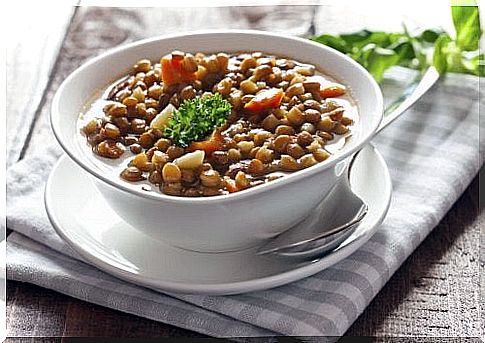
Calcium
Calcium is also essential to prevent demineralization and to produce sufficient breast milk.
You should therefore not only include healthy dairy products such as low-fat natural yogurt and cheese (in moderation, as it contains a lot of fat) in your diet.
The following foods are also high in calcium:
- sesame
- Kale
- broccoli
- Swiss chard
- fennel
- spinach
- calcium-rich mineral water
Daily menu in a postpartum diet
To make it easier for you to create your nutrition plan, we have put together a few menu suggestions:
1. Menu
- Breakfast: 2 slices of wholemeal bread with jam; a glass of low-fat milk or cereal with low-fat milk (or plant-based milk).
- Morning snack: 1 serving of fruit and two slices of turkey slices.
- Lunch: low-fat broth and a serving of pumpkin or mashed potatoes. You can also add a serving of lean meat or fish and a serving of fruit if you wish.
- Afternoon snack: 1 cup of fruit salad.
- Dinner: fruit and a serving of chicken with baked potatoes; or a vegetable cream soup.
2. Menu
- Breakfast: 1 cup of low-fat milk, a serving of breakfast cereal (no added sugar!). A glass of orange juice with it.
- Morning snack: 2 slices of wholemeal bread with jam and low-fat yogurt.
- Lunch: 1 serving of lean meat or fish with a serving of whole grain rice or whole grain pasta. Another option: mixed salad or steamed vegetables with a little olive oil. For dessert: low-fat yogurt or a portion of fruit.
- Afternoon snack: wholemeal biscuits and a piece of fruit.
- Dinner: vegetable cream soup or a vegetable omelette with a little chicken or natural tuna. And for dessert you can eat fruit or low-fat yogurt.
- Before going to bed: If you are still hungry, you can have a serving of cereal with low-fat milk.
Tips for a postpartum diet
To get back to normal weight after pregnancy, you should also consider the following tips:
- Include 5 servings of fruits and vegetables in your diet every day. Your organism receives important vitamins, minerals and antioxidants.
- Eat 5 servings daily spread over the day: breakfast, morning snack, lunch, snack and dinner.
- Don’t skip a main meal!
- Drink about 2 liters of water a day.
- Avoid sugary foods as much as possible (chocolate, sweets, cakes, industrial baked goods …)
- You should also avoid sugared drinks!
- Include poultry meat (skinless!) In your diet.
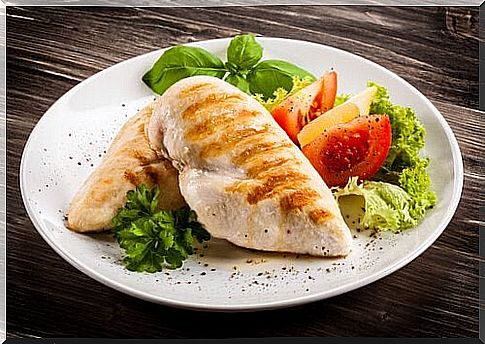
Even more tips …
- Include fish in your diet every day to get enough protein.
- Exercise daily! For example, you can take your baby for long walks. This will make it easier for you to lose weight and also have more energy to take care of your child.
- Cut back on high-fat foods, especially fatty red meat, sausages, and fried foods . You should also avoid sauces, butter, and unhealthy oils.
- Eat low-fat dairy products to reduce your intake of fats.
- Try to reduce your salt intake. So you should avoid ready meals, potato chips or salted nuts and seeds.
- In addition, you should also avoid caffeine, alcoholic and carbonated drinks.
- You can take supplements with vitamins and minerals. Get advice from your doctor before you decide to do it!
A post-pregnancy diet needs to be healthy and balanced. You not only need sufficient nutrients for yourself. Your baby must also be supplied with everything it needs from breast milk!
You should therefore by no means go on restrictive diets. Take your time, take care of yourself and your baby and establish healthy living habits. Enjoy the wonderful hours with your little darling!
